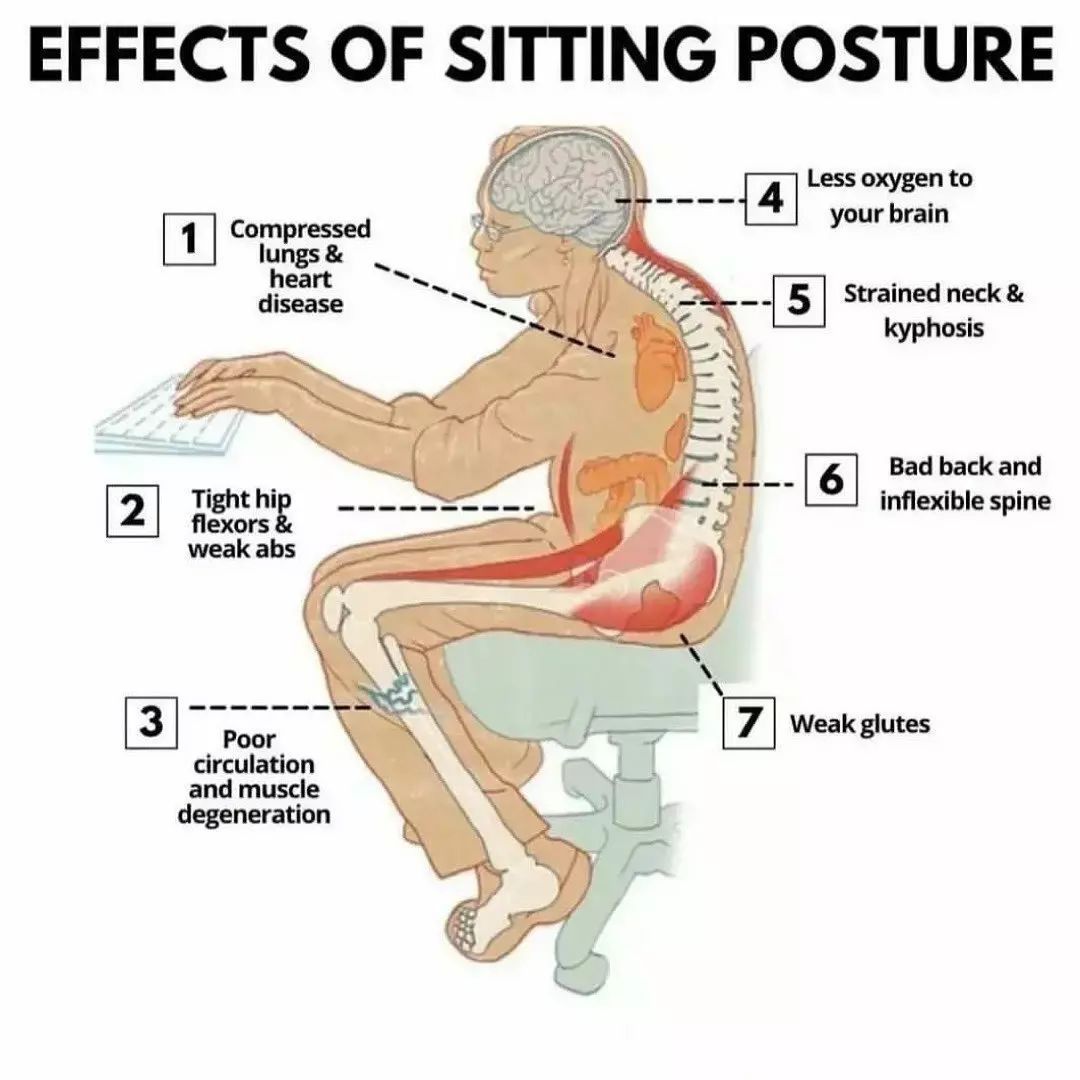
Sitting Posture and Health
Sitting posture has a big impact on physical health, productivity and well-being especially with prolonged sitting common in modern life. Poor posture can lead to pain and long term issues, while good posture has benefits, according to Journal of Physical Therapy Science (2021) and NIH.
Poor Posture: Slouching or hunching strains the spine, increases lower back pain by 25%, according to Spine Journal (2020). Forward head posture stresses neck muscles, causes discomfort in 30% of office workers, according to Springer Nature. It reduces lung capacity by 10%, limits oxygen flow, according to Journal of Applied Physiology. Poor posture also compresses abdominal organs, slows down digestion by 15%, according to American Journal of Gastroenterology (2019) and causes fatigue and reduced focus.
Good Posture: Sitting up straight with shoulders relaxed, back supported and feet flat aligns the spine, reduces back pain by 20%, according to Journal of Orthopaedic Research. It improves circulation, boosts energy by 12%, according to NIH. Good posture improves breathing efficiency, increases oxygen to the brain for 10% better cognitive performance, according to Journal of Neuroscience. It also supports healthy digestion, reduces bloating, according to Nutrients (2020).
How to Improve Sitting Posture:
Ergonomic Setup: Adjust chair height so knees are at 90°, backrest supports the lower back. Monitors at eye level, 20-30 inches away, according to Occupational Health Journal.
Take Breaks: Stand and stretch every 30 minutes for 1-2 minutes to reduce muscle tension by 15%, according to Journal of Sports Science.
Strengthen Core: Practice yoga poses like Cat-Cow to strengthen spinal stability, according to Yoga Journal.
Mindful Sitting: Check posture hourly, ears should align with shoulders and hips.
Tips: Pair with a nutrient rich diet (25g fiber/day, e.g., spinach) and 2-3L water to support muscle health, according to USDA. Use a lumbar roll or ergonomic chair for extra support. Practice 10-min daily mindfulness to reduce stress which worsens posture, according to Psychoneuroendocrinology. Standing desks can reduce sitting time by 20%, according to American Journal of Preventive Medicine.Tips: See a doctor if pain persists, it may be a spinal issue, according to NIH. Don’t overcorrect posture which strains muscles in 5% of cases, according to Journal of Clinical Orthopaedics. If new to exercise start slow to avoid injury. Make sure ergonomic setup fits your body.
Good sitting posture is natural comfort, health and productivity.





